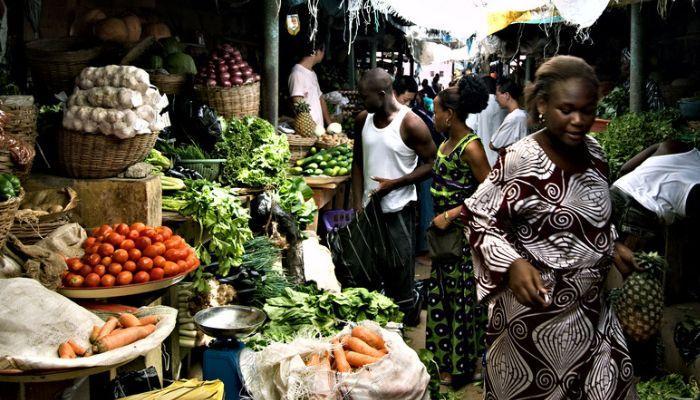
NIGERIA’S high trade costs are standing out in bold relief again. In its April 2024 Africa’s Pulse, a biannual survey of African economies, the global lender noted that trade costs in Nigeria (and Ethiopia) “are four to five times higher than in the United States.” On most counts, this is obvious. The Bank traced this to steep transportation costs, shabby road infrastructure and insecurity. These are entrenched factors, which President Bola Tinubu, his economic team and security chiefs need to push against urgently.
To some extent, Tinubu inherited these toxic trade costs. Take insecurity. Long before Tinubu, farmers had abandoned their farmland because of Islamic terrorism, banditry and Fulani herdsmen attacks. In the previous era, 63,111 died in violence; thousands of others were kidnapped. So, the farmers simply quit tilling the land.
Combined with Nigeria’s infrastructure deficit estimated at $100 billion annually over 30 years, the outcome is high food prices. Food inflation is 37.2 per cent. Food inflation in the US in March stayed at 2.20 per cent from the preceding month.
In many ways however, the President has added to the high trade costs. His policies to remove petrol subsidies during his inauguration last May and float the naira have sent the cost of doing business, prices and inflation through the roof. Recently, the government cancelled subsidies for Band A electricity consumers. This category, which is supposed to enjoy a minimum of 20 hours power supply daily, will be paying N225 per kilowatt hour from N68KWh.
This has resulted in excessively high cost of production for both local and imported goods. In the first quarter, diesel, a vital component in manufacturing because of retarded electricity, cost an average of N1,600 per litre. With petrol post-subsidy removal inching towards N700 per litre, the high cost of these inputs reflected massively in the final cost of goods.
Unfortunately, there is no railway system to take up the slack. The rail system is hampered by the political system that vests it solely on the centre.
Imported food, drugs, raw materials, petroleum products and machinery soared astronomically, forcing many organisations and SMEs to close.
At 24.75 per cent, the lending rate is exorbitant. The average lending rate in the Euro Area is 3.76 per cent from 2020 to 2024.
Other factors in the high costs of trade in Nigeria include multiple taxation, delayed port operations, and government control of state-owned enterprises.
Imported goods suffer massive delays at the seaports. The demurrage on them is transferred to consumers. To offload and upload goods, hordes of non-state actors levy owners, adding to trade costs. LG workers block highways across the country to extort levies.
Taiwo Oyedele, the Chairman of the Presidential Committee on Fiscal Policy and Tax Reforms, counted about 200 taxes. While government collects 62 – federal (16); state (25) and LGAs (21) –, non-state actors collect 108 informal or ‘nuisance’ taxes daily.
In an instance, the Federal Government collects VAT on behalf of the three tiers, state governments still collect consumption taxes from the same business outfits. Fortunately, the Oyedele committee says it is determined to streamline the taxes to a single digit and is discussing with the states and LGAs to eliminate the nuisance taxes.
SOEs aggravate costs primarily because they are poorly managed. Nigeria, Africa’s largest crude exporter, imports petroleum and steel products because the SOEs in charge of them are comatose.
To reduce the costs, Tinubu should hasten the work on streamlining the multiple taxation, privatise the SOEs, rebuild infrastructure, and deepen electricity supply. On the security side, Tinubu should engage with the sub-national governments for state police and collaborate with the National Assembly to decentralise the railway system to allow private sector involvement.

